Events
UPCOMING NCEER Events:
INSIGHT XVI
Tuesday, December 16th, 2025
Ford Design Center, Room 2.350 (the Hive)
Faculty across all disciplines and levels of experience are invited to join this interactive workshop exploring how generative AI can transform teaching and learning. Keynote speakers and panelists will share their expertise and showcase practical examples of how they have integrated AI tools into their courses to foster engagement, creativity, and deeper learning.
In addition to hearing real-world applications, participants will take part in a short guided activity designed to spark ideas for incorporating generative AI into their own teaching practice. Whether you are just beginning to explore AI or already experimenting with it in your classroom, this workshop offers inspiration, strategies, and a supportive space to think about the future of student learning.
Agenda
8:45 a.m. | Registration and Breakfast
9:00 a.m. | Welcome and National Landscape
9:10 a.m. | Keynote 1 - Dr. Lorena Barba
10:05 a.m.| Ten-minute Break
10:15 a.m. | Faculty Panel (Abbie Stringer, Chamille Lescott, Jeff Richards, Yiji Zhang)
11:15 a.m. | Interactive Activity
11:55 a.m. | Lunch Pickup
12:05 p.m. | Keynote 2 - Dr. Xu Wang (Working Lunch)
1:00 p.m. | Academic Integrity
1:25 p.m. | Closing Activity
1:50 p.m. | Wrap-up & Next Steps
2:00 p.m. | Dismissal
American Society of Engineering Education Annual Conference Debrief
Wednesday, October 8th, 9 - 10 AM
Technological Institute Room C211 (IEMS Conference Room)
We will be holding our annual NCEER ASEE Conference Debrief on Wednesday October 8, from 9-10AM in the IEMS Conference Room (Tech C211). At this event, NU participants that attended the conference in June will share an interesting thing they learned or presented. It is a great way to get to know a little bit about the kinds of workshops and talks that happen at the ASEE conference, and what NU faculty find useful. We’ll also have time for a bit of discussion on each topic.
If you’re planning to attend ASEE in 2026, the abstract deadline is October 15.
Past NCEER Events:
Flexible Extension Policies Discussion
March 10th, 2025
Technological Institute Room L440 (ECE Conference Room)
INSIGHT XV - Student Thriving
Tuesday, December 17th, 2024
9:00 AM - 2:00 PM
This year, the Insight Workshop will be about student thriving and include guest speaker, Karin Jensen from the University of Michigan, as well as Northwestern’s own Bruce Ankenman and Joe Holtgreive. Breakfast and Lunch will be provided.
Make Your Canvas Course Site Accessible in One Hour
November 7th, 2024
Co-sponsored by NCEER and NUIT Teaching and Learning Technologies (TLT)
Creating inclusive, accessible, and usable learning environments for all students is both critical to Northwestern’s mission and a legal requirement. Making your Canvas course site accessible is easier than you may think.
In this workshop, the Northwestern IT Teaching and Learning Technologies team will
- Share the seven core accessibility skills required to make Canvas sites accessible
- Introduce the Pope Tech Accessibility Dashboard and Guide, which make identifying and fixing accessibility errors as simple as the click of a button
- Spend half of the workshop working directly with you to address and eliminate accessibility issues on your Canvas site.
TLT has conducted this workshop with other units across campus, resulting in measurable accessibility improvement by attendees within that hour. When the workshop is complete, you’ll understand the seven core skills to address in your site, have time and support to directly address many of the accessibility skills in your own course, make a connection for future one-on-one support if needed, and be eligible for TLT to make your course documents accessible for you.
Please consider attending to help make McCormick a model for digital accessibility throughout the University. RSVP here to allow us to get an accurate head count for lunch.
Murphy Society Grants for improving undergraduate experience.
February 5, 2024
Have you been wondering how to fund your ideas and initiatives that can improve the undergraduate experience? Do you have a new idea for curriculum or equipment for a class module and need some support to make it happen?
The Walter P. Murphy Society has grants available for faculty who are looking to improve the undergraduate experience. Come learn more about the Murphy Society Grants program and how to apply.
INSIGHT XIV - Alternate Assessment
Tuesday, December 12th
This year, the Insight Workshop will be about alternate assessment, including why we might consider alternatives to exams, quizzes, and homework; examples of alternate assessments; how we might implement them; and how they can contribute to equitable classroom practices. This workshop will involve reflection and discussion, giving you time to think about what you do now to assess student learning and what you might do in the future. Guest speaker Brian Helmke from University of Virginia will provide the keynote over lunch.
American Society of Engineering Education Annual Conference Preparation Sessions
Part 1- Friday, October 6th, 2023
Part 2- Friday, October 20th, 2023
We will be holding two sessions in October geared towards becoming involved at the American Society of Engineering Education Annual Conference.
The 2024 ASEE meeting will be held June 23-26 in Portland, Oregon. The deadline to submit an abstract is November 1.
Session #1: What is ASEE and how to get involved? (October 6th, 3-4PM)
- Popular sessions/events/divisions
- Options for submitting an abstract: Works-in-Progress and Full paper
- Service in ASEE
- Fostering potential collaborations within McCormick with the goal of submitting to ASEE
Session #2: Abstract Swap (October 20th, 3PM for 60-90min)
- Get feedback on your abstract draft from other McCormick faculty submitting to ASEE
Ethical Responsibilities of Faculty
Part 1 - Wednesday April 26, noon-1pm
Part 2 - Wednesday May 3, noon-1pm
Rob Linsenmeier and Jennifer Cole
We have been interested this year in our students becoming ethical engineers, and ways in which we might teach them about professional ethics, but faculty are also in a profession that we rarely examine in that light. The independence we have and our responsibility to each other and to students requires that we embrace standards of conduct.
In the first session we discussed codes of professional conduct in the areas of teaching and advising published in the American Association of University Professors’ (AAUP) Statement on Professional Ethics and in the Northwestern’s Faculty Handbook (especially pp 10-14). We also discussed how the codes provide only a framework for ethical discussions, and that there are many decisions we make that involve ethical reasoning from those standards. Our solutions to ethical dilemmas are in the context of our identities as faculty members and the social and political structure of the university. The pandemic, the increased attention to accommodations, stresses on students, and the diversity of the student population all enter into the decisions we make about how we interact with students. We seek to act both fairly and flexibly, and the Ethics of Care may be more useful than consequentialism or deontology. A few useful references are:
Paul D. Eisenberg (2011) The truth, the whole truth, and nothing but the truth. pp 201-210. In Cahn, S.M. Moral Problems in Higher Education. Philadelphia: Temple Univ. Press
Mariana T. Guzzardo, et al (2021) The ones that care make a difference: perspectives on student-faculty relationships. Innov. Higher Education 46: 41-58.
Dawn Lyken-Segosehe, John M. Braxton, Mary K. Hutchinson, Eugenia Harris (U. Botswana, Vanderbilt U., Trevecca Nazarene U.) Codes of Conduct for Undergraduate Teaching in Four Types of Colleges and Universities. Innovative Higher Education 43: 289-302, 2018
L. Earle Reybold, (2008) The social and political structuring of faculty ethicality in education. Innovative Higher Education 32:279-295, 2008
L. Earle Reybold (2009) Faculty Ethics: Ideal principles with practical applications. J. Veterinary Medical Association 36 (4) 375-381. 2009.
In the second session we discussed a case contained in Ethical Dilemmas in the College Classroom: A Casebook for Inclusive Teaching, by Rosette Cirillo and Sarah Silverman, at the CIRTL Network. This case (the “Iris Case”) involved issues around a lab group that was not functioning well for several reasons. The casebook contains the case, which was slightly modified for faculty use, and resources about difficult situations in lab groups.
Center for Leadership Programs and Leadership Ethics
Wednesday, March 29th, 10:30 - 12:00
Jacqueline Ashley and Adam Goodman from Northwestern's Center for Leadership
Come to learn more about the Center for Leadership, their programs for students, and curricular support for faculty. They'll also share how they teach students Leadership Ethics and navigating complex work situations.
Recognizing contributions of undergraduate engineering students
Wednesday April 5, noon-1pm
Mohammad Hosseini
Students involved in short term research projects or internships may make important contributions to the field. Mohammad Hosseini will discuss the ethics around student contribution and recognizing the contribution of student involvement in projects or research.
Dr. Hosseini centered his discussion around a case study in publication ethics, which is now available at the Online Ethics Center:
https://onlineethics.org/cases/ethics-recognizing-contributions-undergraduate-engineering-students
Practical ways to include ethics in our courses
Wednesday, February 8, 2023
Please join us for this lunchtime event, where we'll share some resources from the literature, hear some examples of what faculty in McCormick are currently doing, and have time for informal discussion.
INSIGHT XIII - Education in Professional Ethics for Engineers
December 13th, 2022
This insight workshop focused on what should be taught to engineering students about ethics, and what approaches we should use to prepare them for dealing with ethical challenges, big and small, in the workplace. The schedule of the Workshop is below, with links to some resources that faculty may find useful in teaching ethics.
We were joined by three guests who have worked extensively in ethics education for engineers.
Kelly Laas is the Librarian and Ethics Instructor at the Center for the Study of Ethics in the Professions (CSEP) at the Illinois Institute of Technology. She has supervised projects relating to the development of online ethics resources and collections, including the management of CSEP’s large, searchable Ethics Codes Collection. She is currently collaborating with the National Academy of Engineering’s Center for Engineering, Ethics and Society in developing the Online Ethics Center, as well as developing the Ethics Education Library, an online database of articles, syllabi, ethics case studies, and best practices of how to integrate ethics into existing technical courses and workshops.
Dr. Brent Jesiek is a Professor in the Departments of Electrical and Computer Engineering and Engineering Education at Purdue University. His research interests include ethics and social responsibility in engineering education and practice, as well as historical and social studies of engineering and computing, and global engineering education. He leads the Global Engineering Education Collaboratory (GEEC) research group. He has received awards for teaching and mentoring, and has received numerous NSF grants, including a CAREER award to study boundary-spanning roles and competencies among early career engineers. In May 2023, Dr. Jesiek will be the conference chair for Ethics-2023, to be held at Purdue under the auspices of the IEEE Society on Social Implications of Technology.
Dr. Mark Bourgeois is from the Technology Ethics Center at Notre Dame University. His work mainly concerns ethics and social responsibility of graduate students. Formerly at Northwestern, Mark wrote the Ethics section of the Design Thinking and Communication book that is used in our freshman engineering course.
A topic that came up several times was that teaching ethics throughout the curriculum is more effective than including it only in capstone design. Students need first to recognize when an ethical situation exists, and this sensitivity can be promoted early and often in engineering courses. Following recognition, more information about ethical knowledge and behavior can be included in courses, and CSEP has recommendations for this.
The Agenda for Insight XIII is below, with links to presentations.
Agenda 9:00 Welcome and Introduction 9:15 Breakout 1: What should students learn?
Presentation by Kelly Laas
10:10 Ethical Theories/Frameworks
Presentation by Robert Linsenmeier
10:35 Breakout 2: How to teach ethics?
Introduction by Jennifer Cole
11:35 Status of ethics education in McCormick: An analysis of survey results
Presentation by Jennifer Cole
11:50 Student moral/ethical development
Brief presentation by Robert Linsenmeier
12:30 Lunch & Plenary: "Encountering Engineering Ethics in the Workplace: Stories from the Trenches" by Brent Jesiek 1:30 Assessment of student moral/ethical development
Presentation by Kelly Laas
Other Resources, in addition to those given in the bios of our guest speakers include:
The Center for Engineering, Ethics and Society of the National Academies has issued several reports about education in engineering ethics, including the 2016 report Infusing Ethics into the Development of Engineers
The Online Ethics Center for Engineering and Science has scenarios for educational purposes, communities of practice that one can join, and links to conferences
A few National Academy of Engineering (NAE) reports related to ethics education:
- Overcoming Challenges to Infusing Ethics into the Development of Engineers
- Practical Guidance on Science and Engineering Ethics Education for Instructors and Administrators
- Engineering, Social Justice, and Sustainable Community Development
- Ethics Education and Scientific and Engineering Research
- Emerging Technologies and Ethical Issues in Engineering
- On Being a Scientist
Building on Lessons From the Pandemic
TUESDAY, DECEMBER 14, 2021 10 a.m. to 11 a.m. CST
In this session, created with the assistance of Professor Michael Peshkin, several McCormick faculty members presented lessons they had learned from online teaching during the Covid-19 Pandemic, and what they would try to retain as they switched back to teaching in person. About 50 McCormick faculty and a few others attended, about half in person, and half on Zoom. The presentations were recorded, and they are available on Youtube. Resources made available by the participants are also available at https://tinyurl.com/2p8nyyya (google doc). The presentations were concerned:
- Lecture videos and use of class time
- Lecture videos and in-class coaching
- Group project videos and peer feedback
- Use of a lecture backchannel
- Engineering students’ perspective on this topic (from a survey*)
- Using MS Teams for group work
- Using MURAL for studio activities
- Using video games for engagement
*Students in Professor Peshkin’s Fall quarter 200 level course and a few others were surveyed, a total of 132 students. The open-ended question was: "What can we adapt or continue in the future, from the experience of teaching/learning during the pandemic? Don't let these example topics be limiting:
- video of classes.
- technology-mediated interactivity.
- class attendance expectations.
- grading or tests.
- chalkboards, tablets, doc cams, powerpoint.
- group work and zoom.
- homework.
- motivation.”
Professor Peshkin’s analysis of the responses is here. A coding of the most common responses is below. The most dominant finding was that students want to have their classes recorded, not only to watch classes that they miss due to illness or other responsibilities (such as interviews), but also to review points that went by too fast, or need a second look, or to help them do homework or study for exams. While students were not in complete agreement on all the other topics below, there were general themes. Students do not want to be required to attend class, and they generally did not like online exams. Students were divided on whether watching pre-lecture videos was good. If they were short and were followed up well in class, they were generally beneficial, but if a whole lecture was posted to be watched in advance without good activities in class, they were seen as detrimental to learning.
| Topic | Number of Comments |
|---|---|
| Reasons for recording of live class and making it available later | |
| Good for learning at one's own pace; helps to review difficult concepts | 37 |
| Helps review for exam or homework | 19 |
| Students do not lose material when sick | 18 |
| Students do not lose material when missing class for other reason | 11 |
| Allows watching at different speeds | 5 |
| Allows learning when it is best for student | 3 |
| Avoids choice between taking complete notes vs. understanding during class time | 3 |
| Reasons for live streaming of class with recording available later | |
| Students can stay home when sick (and avoid infecting others) | 10 |
| Students do not lose material when missing class for other reason | 8 |
| Pre-recorded lecture material | |
| Short prelecture videos followed by in class activities are good | 7 |
| Watching pre-recorded videos in advance is bad | 7 |
| Availability of lecture notes/slides | |
| All comments positive | 14 |
| Assessment Issues | |
| Open note exams are good (more realistic, better questions, less memorization) | 11 |
| Lockdown browser is bad | 3 |
| Dropping lowest grade relieves stress | 3 |
| In class exams help prevent cheating | 3 |
| Exams should be less of the grade | 3 |
| Digital submission of homework is good | 3 |
| Comments on the use of Zoom | |
| In person lecture more engaging/preference for live class | 7 |
| Asking questions better/smoother in person | 3 |
| Zoom is useful for asking questions (presumably in chat) | 3 |
| Zoom breakout rooms in class are not very effective | 2 |
| Group meetings/activities are better in person | 6 |
| Zoom for office hours is more convenient | 9 |
| Live office hours are preferable | 5 |
| Comments on requiring attendance | |
| Students should not be pressured if mental and physical health require remote learning | 7 |
| Provide participation incentive rather than a requirement to be in class | 4 |
| Students may avoid class if it is not required | 2 |
| Motivation | |
| Motivation was reduced during the pandemic | 4 |
Imagining the Future of Undergraduate STEM Education
MONDAY, APRIL 12, 2021 3 p.m. to 4 p.m. CST
NCEER Presentation & Discussion: Rob Linsenmeier and Jennifer Cole
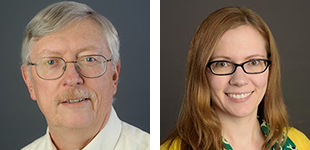
Rob Linsenmeier, Biomedical Engineering and Neurobiology
Jennifer Cole, Chemical and Biological Engineering
Last fall, the National Academies held a virtual conference to discuss the outlook for STEM education in 2040 from many different perspectives. Rob and Jennifer will cover some highlights from this meeting. The discussion will center on possible implications for the future of STEM education at Northwestern.
Recordings and meeting materials for the conference are at:
https://www.nationalacademies.org/event/10-21-2020/imagining-the-future-of-undergraduate-stem-education-symposium - papers 2 and 3 under meeting materials are particularly interesting.
Using agent-based modeling to help students learn science topics from the perspective of emergence
MONDAY, MARCH 15, 2021 3 p.m. to 4 p.m. CST
NCEER Presentation & Discussion: Jacob Kelter and Jonathan Emery
Jacob Kelter, Computer Science and Learning Sciences
Jonathan Emery, Materials Science and Engineering
Jacob and Jonathan have worked on two research topics. The main one is a unit on diffusion in which students use a computational agent-based model to explore how macro-level patterns emerge from the encoded micro-level rules. Then, they build on the agent-based representation to derive the diffusion equations (Fick's laws) themselves. In this way they learn to connect micro-level behaviors to emergent macro-level behaviors. They have also worked on a model and unit for students to learn about semiconductors. These ideas could be extended to many subjects taught in McCormick including in ChemE and BME.
UNGRADING
MONDAY, FEBRUARY 22, 2021 3 p.m. to 4 p.m. CST
NCEER Presentation & Discussion: Chris Riesbeck
Why grades are extremely problematic from pretty much every angle, what I’ve done instead,
and how I've survived in a grade-centric environment like Northwestern.
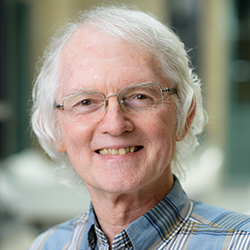
Chris Riesbeck, Associate Professor of Computer Science
Suggested readings for the February 22 session:
- https://www.jessestommel.com/how-to-ungrade/ — an overview of reasons and techniques by one of the more cited authors
- https://www.dukechronicle.com/article/2020/03/duke-university-gradin-coronavirus-covid-19-public-health-crisis-emergency-thinking-ungrading-pass-fail — a look at the labor-based approach, one of the things I often do
- https://www.teachersgoinggradeless.com/blog/2017/07/10/20-years-gradeless/ — my own contribution to this mix, focusing on feedback and mastery learning
Insight XII: Diversity, Equity and Inclusion in McCormick: A workshop for McCormick Faculty
December 17, 2019
The twelfth Insight Workshop focused on issues of diversity, equity, and inclusion as they relate to McCormick Undergraduates. About 35 faculty attended.
The full schedule is here. First, data about demographics of underrepresented minority students in engineering were presented by Professors Cole and Linsenmeier, and Professor Mejia and Dean Worsdall discussed specific aspects of diversity in McCormick. Second, there was a workshop by Dr. Omari Keeles, the Assistant Director for Diversity, Equity and Inclusion at the Searle Center for Advancing Learning and Teaching. Dr. Keeles led exercises to have the audience to reflect on their status and beliefs concerning equity and inclusion. Dr. Keeles recommended an inclusive teaching guide, which can be downloaded here. There are other programs available on these topics at the Searle Center. Finally, Courtney Cockrell from the Division of Student Affairs discussed supports for first generation and low income and underrepresented minority students.
NCEER Workshop: Finding Productive Rabbit Holes: From ChemEng Undergrad to NSF-Funded Engineering Education Researcher
Wednesday, June 12, 4 – 6 pm
Alice Pawley, Associate Professor of Engineering Education, Purdue University
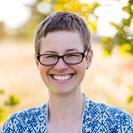
Reception to follow
4:00-5:00PM: Keynote Talk by Alice Pawley, Associate Professor of Engineering Education, Purdue University (Abbot Auditorium)
Alice Pawley will share her career journey from a ChemEng undergrad to an NSF-funded engineering education researcher. She will also share insights from current research projects, including her PECASE project titled “Learning from Small Numbers” where she uses qualitative analysis of interviews from minoritized engineering students to think about how gender and race are built in to the structure of engineering education.
Alice Pawley is an Associate Professor in the School of Engineering Education and an affiliate faculty member in the Gender, Women’s and Sexuality Studies Program and the Division of Environmental and Ecological Engineering at Purdue University. Prof. Pawley's goal through her work at Purdue is to help people, including the engineering education profession, develop a vision of engineering education as more inclusive, engaged, and socially just. She runs the Feminist Research in Engineering Education Group, whose diverse projects and group members are described at pawleyresearch.org. She was a National Academy of Engineering CASEE Fellow in 2007, received a CAREER award in 2010 and a PECASE award in 2012 for her project researching the stories of undergraduate engineering women and men of color and white women, and received the Denice Denton Emerging Leader award from the Anita Borg Institute in 2013.
5:00-6:00PM: Reception and Posters (Pancoe Cafe, 2nd floor)
Join us for wine, cheese, and conversation and find out how graduate students and postdocs are improving learning and teaching at Northwestern. Graduate Teaching Fellows, Searle Teaching-as-Research (STAR) participants, and Teaching Certificate Program participants will present posters sharing innovative learning and teaching projects they have developed and implemented this academic year.
Helping your students learn via sketching
Tuesday, April 9, 2019, 4 – 5:30 pm
Kenneth Forbus, Walter P. Murphey Professor, CS
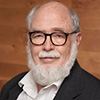
Location: Mudd 2210
Sketching is a valuable way to think and communicate in many STEM disciplines. Sketch Worksheets are a new kind of sketch-based educational software, developed at Northwestern, designed to facilitate spatial learning. Each worksheet represents a specific exercise which a student does on a computer. Students get feedback based on automatic comparison of their sketch with a hidden solution sketch. A software gradebook, which uses scoring rubrics in the solution sketch, helps instructors in grading. Sketch Worksheets have already been deployed in geoscience classes at Northwestern and at University of Wisconsin-Madison, and in AI classes here at Northwestern. They are domain-independent, requiring only that the exercise involves visual distinctions that the software can understand. Importantly, Sketch Worksheets are authored by instructors and domain experts, without needing AI researchers in the loop. This makes them scalable and customizable. (For example, search for “CogSketch” at http://serc.Carleton.edu/index.html you will find geoscientist-authored worksheets.) This session will discuss the basic ideas behind sketch worksheets and we will walk through the construction of a simple worksheet, so you can see how they might be useful in your own classes.
Some tablet computers will be provided for those who want to follow along, and you can of course download and install CogSketch on your own Windows machine if you prefer. CogSketch is already installed in several teaching labs on campus, if you would like to try it out in advance.
Insight XI: 3D Printing and Maker Skills as Educational Tools
Tuesday, December 18, 2018, 8:30 AM – 1:30 PM
Notes from Insight XI Workshop
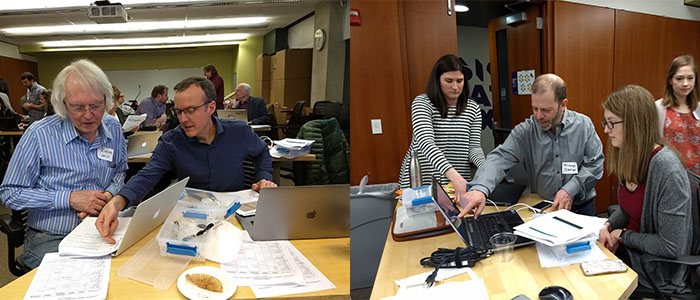 Location: DTC studios: Ford 201-211
Location: DTC studios: Ford 201-211
The Insight Workshop is a chance for McCormick faculty to engage on a topic of interest in undergraduate engineering education. This year we will have a session about 3D printing and other Maker Skills. McCormick students all get some practice in building prototypes as freshmen in DTC.
In this session, we will go beyond that to explore how further skills can be useful for most or all majors. The goals are to discuss how different learning objectives might be assisted by 3D printed materials, constructed either by students or faculty, and to offer a hands-on component.
We expect that this will be especially relevant for people who know little about these topics now.
| Time | Agenda | Presenter |
|---|---|---|
|
8:30am |
Continental Breakfast |
|
|
9:00 – 9:05am |
Welcome |
Wes Burghardt |
|
9:05 – |
Purpose of workshop |
Rob Linsenmeier / Jennifer Cole |
|
9:15 – |
Panel: 3D Printing in the curriculum – various ways to incorporate it into the learning environment |
Moderator: Jennifer Cole Members: Pam Daniels, David Gatchell, Matt Glucksberg, Mike Beltran |
|
10:00 – |
Beyond 3D printing – other fabrication resources |
Nick Marchuk |
|
10:15 – |
Break and discussion |
|
|
10:30 – |
What it takes to do 3D printing – the visualization challenge |
Michael Beltran |
|
11:00 – |
Hands on Demo: Working with OnShape and Cura |
Michael Beltran, UG Student |
|
12:00 – |
Tour of Rapid Prototyping Facility |
Nick Marchuk, Michael Beltran |
|
12:45 – |
Lunch and discussion |
|
NCEER Collaboration - Debriefing of ASEE Annual Meeting
June 2018
Salt Lake City, UT
Recap HERE
Engineering college-wide instructional change through faculty teaching and innovation communities
Tuesday, November 14, 2017, 4 - 5 p.m.
Tech B221
Laura Hahn , Director, AE3
, Director, AE3
University of Illinois at Urbana-Champaign
Geoffrey Herman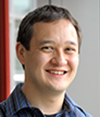
Teaching Assistant Professor, Computer Science
University of Illinois at Urbana-Champaign
Refreshments will be served. Please RSVP to tara.sadera@northwestern.edu
Abstract: In February 2012, the College of Engineering created the Strategic Instructional Initiatives Program (SIIP) to transform and revitalize the core engineering courses at the University of Illinois at Urbana-Champaign. As SIIP has evolved, we have learned that in order to achieve these goals, we must first focus on creating collaborative teaching cultures. This effort has sparked the rapid spread of Research-Based Instructional Strategies across the college and created a thriving community of faculty invested in improving undergraduate instruction. In this paper, we describe the current policies and procedures that we use to direct SIIP. In particular, we will focus on the structure of the leadership team and how we have fostered deep collaborations among faculty developers, education researchers, and engineering faculty. We conclude by presenting data on the impact and structure of SIIP.
Conference on Pen & Touch Technology in Education
October 12 – October 14, 2017 • Northwestern University • Evanston, IL
Applications of ink-based computing – such as those from current tablet devices – have demonstrated advantages over traditional keyboard/mouse interfaces for promoting student learning and effective educational practice. These applications motivate a new landscape, in which such interfaces will alter the use of technology and enable more effective collaboration and learning experiences.
The Conference on the Impact of Pen and Touch Technology in Education (CPTTE) seeks to bring educators, researchers and technology administrators under one roof for a period of three days to discuss the novel interfaces and applications that are being developed in the space of pen and touch technology, and the successes, the failures and the challenges faced in deploying such technology (software or hardware) in educational environments.
Insight IX: student teams and teamwork
Friday, March 17, 2017
DTC Studios - Ford G201-211
8:30am - 1:15pm
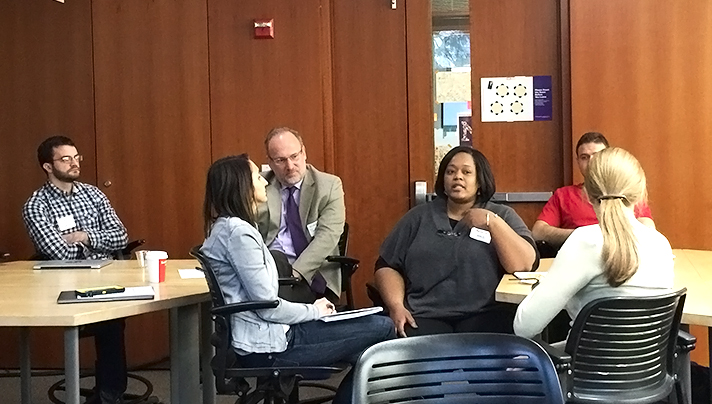
Schedule:
Continental Breakfast: 8:30am
Wesley Burghardt -Welcome
Jennifer Cole -McCormick Survey on Teams
Patricia Sheridan - How students think about teamwork and the impact that has on creating effective teams
Guest Speaker: Patricia Kristine Sheridan
Visiting Assistant Professor in the Center for Leadership at Northwestern
Assistant Professor, Teaching Stream, Institute for Leadership Education in Engineering (ILead) University of Toronto
Q and A; general discussion
Break; move to workshops
Breakout 1 Workshop (8-10 minute presentations followed by discussion)
Emma DeCosta - DTC
Chris Riesbeck - EECS 394
Mike Beltran - ME Senior Design
Breakout 2 Workshop (8-10 minute presentations followed by discussion)
Nick Marchuk - DSGN 360/ME 333
Steve Carr - MSE 318
Gloria Kim - BME 271
Jennifer Cole - ChBE Senior Design
Report from workshops
Gail Berger - Myth Busters: Common misperceptions about teams
Lunch
Final Thoughts
NCEER Seminar: Insights from Early Career Engineers in the Workplace and Implications for Engineering Education
Wednesday, March 1, 2017
9 am- 10:30 am
ITW Classroom- Ford Building
Alexandra Vinson, Postdoctoral Fellow, SESP
Penny Hirsch, Professor of Instruction, Writing Program; WCAS
Segal Design Institute
Alexandra and Penny will share findings from research that they presented at ASEE in June 2016 and facilitate a discussion on the relevance of the research for engineering education. Alex works with the Learning Ethnographies of New Engineers Project led by Reed Stevens at SESP and has been exploring the school-to-work transition of early career engineers at five different sites. Penny presented on findings from a Segal Design study that looked at the impact of Segal’s design certificate program and Design for America on engineering students and recent graduates.
NCEER Seminar: Implementing an instructional grant program for faculty teams: Successes and lessons learned
Monday, December 12, 2016
12:00 - 1:00pm
Tech L440
Geoffrey Herman
Visiting Research Professor, AE3
University of Illinois at Urbana-Champaign
NCEER Member Panel Discussion
What we Learned from the American Society for Engineering Education conference (ASEE)
Date: Thursday, August 25, 2016
Time: 12 p.m. – 1:30 p.m.
Location: BME Conference Room- Tech E11
lunch will be served
Several of the attendees from Northwestern will give brief vignettes about ASEE presentations that they thought would be of general interest to the NCEER Community.
This is the second annual event of this type.
Integrating Cognitive Science with Innovative Teaching in STEM Disciplines: Spatial Learning in STEM
Friday, September 18, 2015: 8 a.m. to 5 p.m.
Saturday, September 19, 2015: 8 a.m. to 1 p.m.
Hilton Orrington Hotel, Evanston, IL 60201
The conference is intended for faculty in the STEM disciplines to learn and discuss how spatial intelligence and spatial skills come into play in undergraduate education in engineering, natural sciences and biological sciences. Students vary in their capabilities and the conference will address what impact this has on their learning and on persistence in a variety of STEM fields, and how spatial skills can be improved. Development of these skills begins early in development, however, so some discussion will be devoted to the precollege years, but the focus will be on undergraduate education. It is expected that most of the audience will have minimal expertise in these particular topics, so the invited talks will be long enough to give substantial background, but still leave time for questions. Further discussions will take place in breakout sessions and over meals. For an introduction to the field, prospective attendees may wish to review the Spatial Intelligence and Learning Center website. The 2015 conference will follow the format of a previous conference about cognitive science and STEM education at Washington University in St. Louis.
The conference is generously sponsored by Northwestern University through the McCormick School of Engineering and Applied Science and the Northwestern Center for Engineering Education Research, the Weinberg College of Arts and Sciences, and the Associate Provost for Undergraduate Education, as well as the Spatial Intelligence and Learning Center.
Attendees are welcome to submit posters on any topic of interest to STEM educators, and/or to cognitive scientists in the field of university education.
Conference Chairs
- Robert A. Linsenmeier, Departments of Biomedical Engineering, Neurobiology, and Ophthalmology, Northwestern University
- David H. Uttal, Department of Psychology and School of Education and Social Policy, Northwestern University
Speakers (alphabetical)
- Sarah W. Bednarz, Department of Geography, Texas A&M University
- Kenneth D. Forbus, Department of Computer Science and School of Education and Social Policy, Northwestern University
- Stephanie M. Gardner, Department of Biological Sciences, Purdue University
- Wade Goodridge, Department of Engineering Education, Utah State University
- Andrew F. Heckler, Department of Physics, Ohio State University
- Nora S. Newcombe, Department of Psychology, and PI of the Spatial Intelligence and Learning Center, Temple University
- Amy Shelton, Department of Psychology and Director of Research, Center for Talented Youth, Johns Hopkins University
- Thomas Shipley, Department of Psychology, Temple University
- Sheryl A. Sorby, Department of Mechanical Engineering – Engineering Mechanics, Michigan Technological University
- Mike Stieff, Department of Chemistry, University of Illinois at Chicago
- David H. Uttal, Department of Psychology and School of Education and Social Policy, Northwestern University
- Jonathan Wai, Talent Identification Program, Duke University
NCEER Seminar: From Flow Visualization to Beauty, Power, Destruction, and Oddness
Date: Wednesday, March 18, 2015
Time: 12 p.m. – 1:00 p.m.
Location: Technological Institute (M345)
The seminar, with Jean Hertzberg, associate professor of mechanical engineering at the University of Colorado Boulder, will describe an interdisciplinary course at CU-Boulder on the production of aesthetically pleasing and scientifically useful images of fluid flows. It brings together mixed teams of engineering and fine arts students.
Flow Vis students have responded enthusiastically, with exit survey comments such as “I’ll never ignore the sky again” or “I see examples of flow vis all the time now.”
After attempts to replicate the Flow Vis pedagogy in the engineering design domain with limited success, an engineering education research (EER) program was undertaken, based on two prongs:
- A neuropsychology approach studying whether students can acquire visual expertise in fluid mechanics, akin to the rapid visual processing of radiologists or dog show judges.
- A mixed-methods sociocultural approach, including quantitative surveys of affect, qualitative interviews and analyses of student work. Both of these are works in progress, and preliminary results will be presented.
Depending on the audience, the talk may shift into a discussion of aesthetics in fluid mechanics, specifically the aesthetics of beauty (laminar flow), power (aerospace applications), destruction (wildfires) and oddness (nonNewtonian fluid behavior). These aesthetics are proposed as a model for other aesthetics in STEM, with importance in the context of science communication.
Dr. Hertzberg teaches graduate and undergraduate courses in measurement techniques, thermodynamics, fluid mechanics, heat transfer, design and computer tools. She has pioneered a spectacular course on the art and physics of flow visualization, and is conducting research on the impact of the course with respect to visual perception and educational outcomes. Her disciplinary research centers around pulsatile, vortex dominated flows with applications in both combustion and bio-fluid dynamics. She is also interested in a variety of flow field measurement techniques. Current projects include electrospray atomization of jet fuel and velocity and vorticity in human cardiac ventricles and large vessels.
NCEER/CIRTL Critical Thinking Workshop
Date: Thursday, May 1, 2014
Time: 2:00 p.m. - 3:30 p.m.
Location: Ford ITW Classroom
Critical thinking is an essential skill for success in the research lab. Are you thinking critically? What are the elements of critical thinking, and can it be taught? Matthew Grayson (EECS), Joshua Leonard (ChBE), and Denise Drane (Searle Center) led a session on their recent project to enhance critical thinking skills in the classroom and beyond. Faculty, postdocs, and graduate students attended and had the chance to develop a critical thinking assignment.
Slides from all three presenters describing the project and its findings are available here.
Also available is the critical thinking skills handout (including links to the Critical Thinking Assessment Test website and various scenarios used to develop assignment questions), as well as a list of critical thinking skills.
The seminar/workshop was organized by CIRTL at Northwestern and NCEER.
NCEER Seminar
Date: Wednesday, April 24, 2013
Time: 12:00 p.m.
Location: Tech E311 (BME Conference Room)
David Gatchell of Segal and Wei Chen of mechanical engineering gave a talk on product archaeology. According to ABET Student Outcome (h), ABET accredited engineering programs are required to show evidence of their students having learned to use global, societal, environmental and economic factors in their engineering design decisions. The literature tells us, however, that most, if not all, departments and programs struggle with satisfying this outcome, often assigning the responsibility to a single cornerstone, capstone or non-engineering course.
By merging the benefits of product dissection with the steps integral to an archaeological excavation, researchers have formulated a new paradigm titled “Product Archaeology.” As part of a team of collaborators spanning six universities we have created a suite of activities to leverage the benefits of product archaeology across all four years of the undergraduate engineering curriculum.
This talk will introduce the audience to the paradigm of product archaeology including its history, contemporary relevance and pedagogical benefits. Ideas and concepts that overlap with Design for X (e.g., X = environment, manufacturing, assembly, etc.) will be made explicit. We will describe how the product archaeology activities have been implemented both locally and nationally, and where future dissemination will occur. In addition, preliminary data from the efforts within the NU consortium will be presented and discussed.
Slides for the talk are available here.
